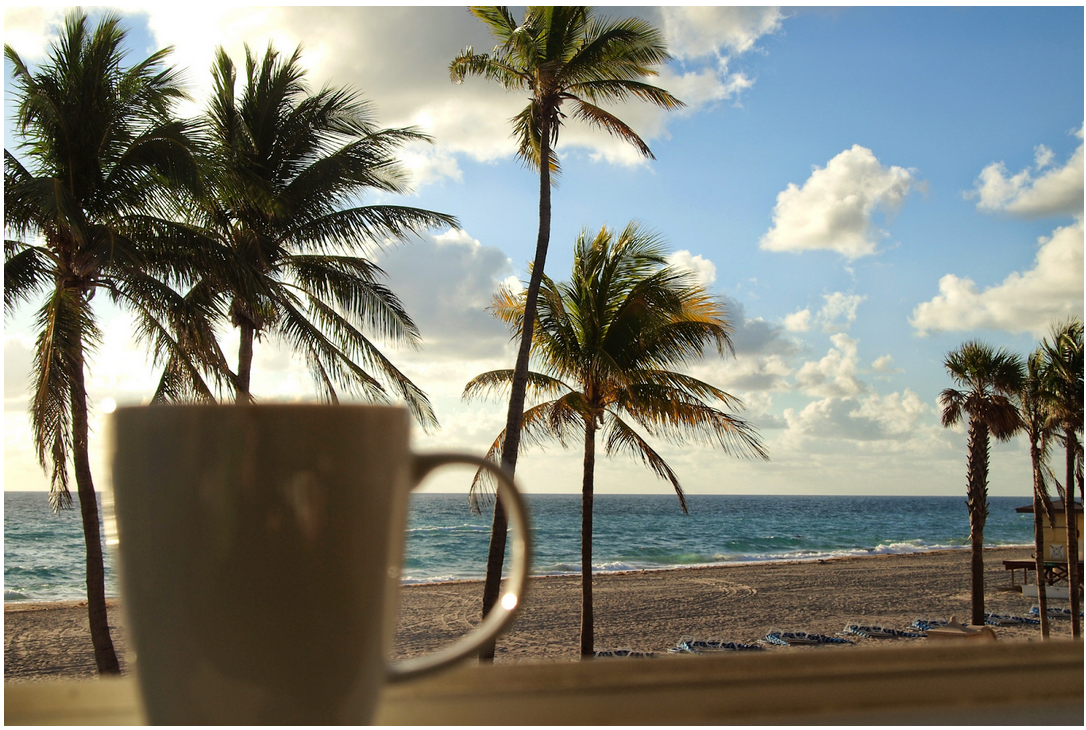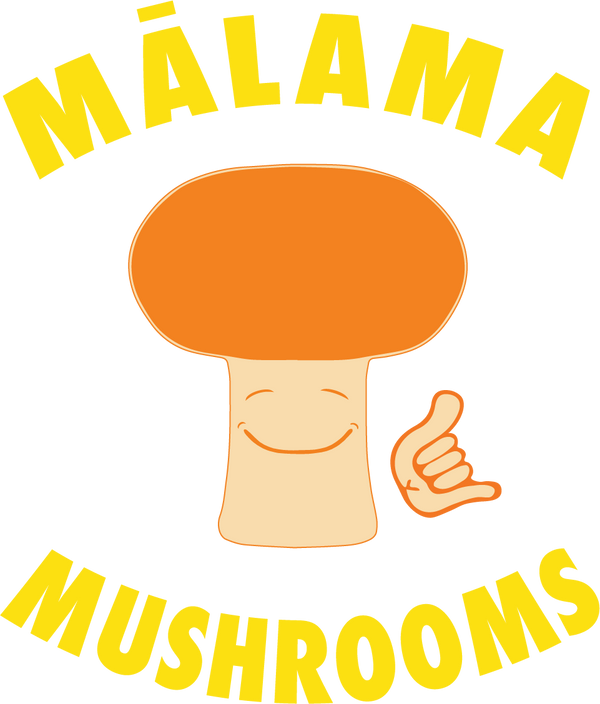
Why is Kona Coffee the Best?
Share
Why Is Kona Coffee One Of The Best Coffees In The World?
There are many reasons to love Hawaii. The perfect weather, the breathtaking views, the Aloha spirit, and Spam Musubis to name a few. But there’s one Hawaiian treasure that has all the others beat – Kona coffee.
I don’t know about you, but I can not start my day without a warm cup of coffee – and Kona coffee is mine and thousands of others’ preferred choice. There’s no other coffee that compares to the one-of-a-kind quality that Kona provides.
Those who know good coffee know that Kona coffee is one of the best. It’s one of the rarest and most prized specialty coffees in the world. People from all over seek out this unique coffee that can only be found growing on the Big Island of Hawaii.
But what is Kona coffee and what makes it so special anyway? Is it the charm of the tropical paradise it hails from? Is it the fact that Hawaii is the only US state that can grow coffee? Or is it its exclusiveness and unbeatable taste?
There are many different reasons why Kona coffee is exceptional. Today we’re going to break down what is Kona coffee (and what it isn’t) and what makes it one of the most desired coffees in the world.

What is Kona Coffee?
Coffee grown in the Kona region of Hawaii is regarded as one of the best coffees in the world. It’s only found growing on the West side of the Big Island of Hawaii – making it an extremely rare coffee. (1)
Coffee labeled 100% Kona, like Malama’s 100% Kona Coffee with Lion’s Mane, is picked by hand from the slopes of the Hualalai and Mauna Loa volcanoes. The Big Island’s coffee-growing region is only about 30 miles long and one mile wide. The dark volcanic soil is rich in nutrients and minerals, thus creating the perfect growing conditions for this type of coffee bean. (1)

It all starts with the rich volcanic soil
There are only about 900 small Kona coffee farms on the Big Island. They’re all independent and almost all family-owned. Most Kona coffee is the Typica variety which is a sub-variety of the Arabica species and very high quality. (1,2)
Most Kona coffee is washed and pulped in clean water after harvesting and then dried. Once the beans are dried, they’re machine-hulled to the green seed stage to be graded. After that, the green seeds can be custom-roasted by the farmer or sold to roasters. (1)
Fun fact! Hawaii has its own coffee grading system and it’s very strict. The grading system is based on the size of the beans and the number of defects. The top 5 Hawaiian coffee categories in order are…(3)
- Extra fancy
- Fancy
- Number 1
- Select
- Prime
Pretty sophisticated, huh?

History of Kona Coffee
You may be surprised to learn that coffee is not native to Hawaii. In fact, people didn’t start growing coffee in Hawaii until the 1800’s when it was brought back from Brazil. (4,5)
Kona coffee’s story begins in 1823 when Hawaiian King Kamehameha II and Oahu’s governor, Chief Boki traveled to England. Unfortunately, the King tragically died of measles before he could return home to the Big Island. (4,5)
On his journey home, Chief Boki stopped in Rio de Janeiro where he picked up some coffee plants to bring back as a tribute to the King. Upon his return, the coffee cuttings were planted on the Chief's island of Oahu. (4,5)
In 1828, a Reverend named Samuel Ruggles brought coffee from Oahu to the Big Island. He discovered that the plants thrive on the volcanic slopes of the Kona region. From 1850 to 1880, several Kona coffee plantations took off and many are still around today. (4,5)
Kona coffee growers have faced many highs and lows over the years and the whole industry has nearly died out a couple of times. In the 1980s, the specialty coffee market exploded, revitalizing the Hawaiian coffee industry. Hawaii then enacted laws to protect the Kona name and secure its specialty coffee ranking. (4,5)

What Makes Kona Coffee So Special?
If you ask 10 different coffee fanatics what makes Kona coffee so unique you’ll get a different answer each time. It could be the tropical climate, the unique volcanic soil, or the fact that Hawaii is the only state that grows coffee. Or perhaps it’s the rarity of the bean and exceptional taste.
There are no wrong answers to what makes Kona coffee so special. After all, it’s one of the most highly regarded coffees in the world. Although there are a couple of interesting factors worth noting.
Growing Conditions
Kona coffee is 100% Arabica that usually grows at high elevations. It’s believed that higher-elevation coffee beans grow slower, and exceptional flavor needs slow growth. Kona coffee plants are grown between 500 and 3,000 feet, much lower than most specialty arabica coffee in other parts of the world. However, Kona’s frequent cloud cover and rain create the perfect climate for slowing the growth of beans. (6)
It also helps that Kona’s volcanic soil is rich in nutrients and mineral, which provides sufficient drainage. Combined, these factors provide pristine growing conditions for specialty Kona coffee. (6)
Taste
Many people are first drawn to Kona coffee for its rich aroma. Depending on which farm it was grown and how it’s processed, it may have berry, citrus, nutty, or spicy notes. It’s a good coffee that’s easy to drink and is well balanced. It has a satisfying aftertaste that lingers.
Malama’s 100% Kona Coffee With Lions Mane is a dark roast with a daring, bold flavor. Coffee lovers appreciate it for its subtle honey and berry notes. However you describe it, it definitely has a richness that’s quite satisfying.

Things To Consider When Buying Kona Coffee
Maybe you’ve tried Kona coffee before and didn’t think it was a big deal. But how do you know you actually tried real 100% Kona coffee?
Some coffee products with the Kona label have as little as 10% actual Kona coffee. The rest of the blend could be anything. It’s a practice where businesses mix a few Kona beans with cheap coffee beans so they can jack up the price. (7)
Other unethical practices include scammy phrases like “taste of Hawaii” or “Kona style”. This is just another marketing scam and these coffee beans often have no relation to real Kona coffee. (7)
Fortunately, the state of Hawaii has strict laws protecting the 100% Kona label. The Hawaii Department of Agriculture and The Hawaii Coffee Association (HCA) has federal trademarks for green coffee grown in Hawaii. (7)
The Kona region isn’t the only area in Hawaii where growing conditions are ideal for coffee, but Kona is certainly the most renowned. There are also coffee farms on the islands of Oahu, Kauai, Molokai, and Maui. Each of these regions also has its own trademark logo. There’s also a 100% Hawaii Coffee trademark logo. (7)
Not all coffee beans with the 100% Hawaii Coffee trademark are Kona beans. (7) If you want to experience the exceptional taste of real Kona coffee, make sure the label says 100% Kona beans. Like Malama’s 100% Kona Coffee With Lion’s Mane with the coffee that is grown right here in the Kona region on the Big Island.

Bring The Tropical Paradise To You With 100% Kona Coffee
There are many reasons to love Hawaii and Kona coffee is at the top of the list. Whether you’re a coffee connoisseur or just like a cup of good coffee in the morning, 100% Kona coffee is a must-try. It’s a rare Hawaiian gem that’s exceptionally delicious.
The best part is, you don’t have to go to Hawaii to experience the extraordinary taste of Kona coffee. Mālama Mushrooms offers 100% Kona Coffee that’s supercharged with Lions Mane and Cordyceps Mushroom Extract. The medicinal mushrooms give your brain an extra boost with nootropics and long-lasting stable energy.
We will also be launching a new Kona Organic Coffee Blend soon so keep your eyes peeled!
To have a little bit of Hawaii shipped right to your door, click on the link below to order a bag of 100% Kona Coffee With Lions Mane and Cordyceps.
Here is 15% off Malama Mushrooms 100% Kona Coffee With Lions Mane

Sources:
- http://www.kona-coffee-council.com/page-692163
- https://espressocoffeeguide.com/all-about-coffee-2/coffee-plants/typica-coffee-beans/#:~:text=Typica%20Coffees%20are%20a%20sub,be%20lower%20and%20more%20difficult.
- https://hawaiicoffeeassoc.org/page-1771566
- https://coffeechronicler.com/kona-hawaii/
- https://www.lioncoffee.com/coffee-hawaii-history/
- http://www.coffeeresearch.org/coffee/hawaii.htm
- https://hdoa.hawaii.gov/qad/files/2012/12/qad-coffeebrochure.pdf
